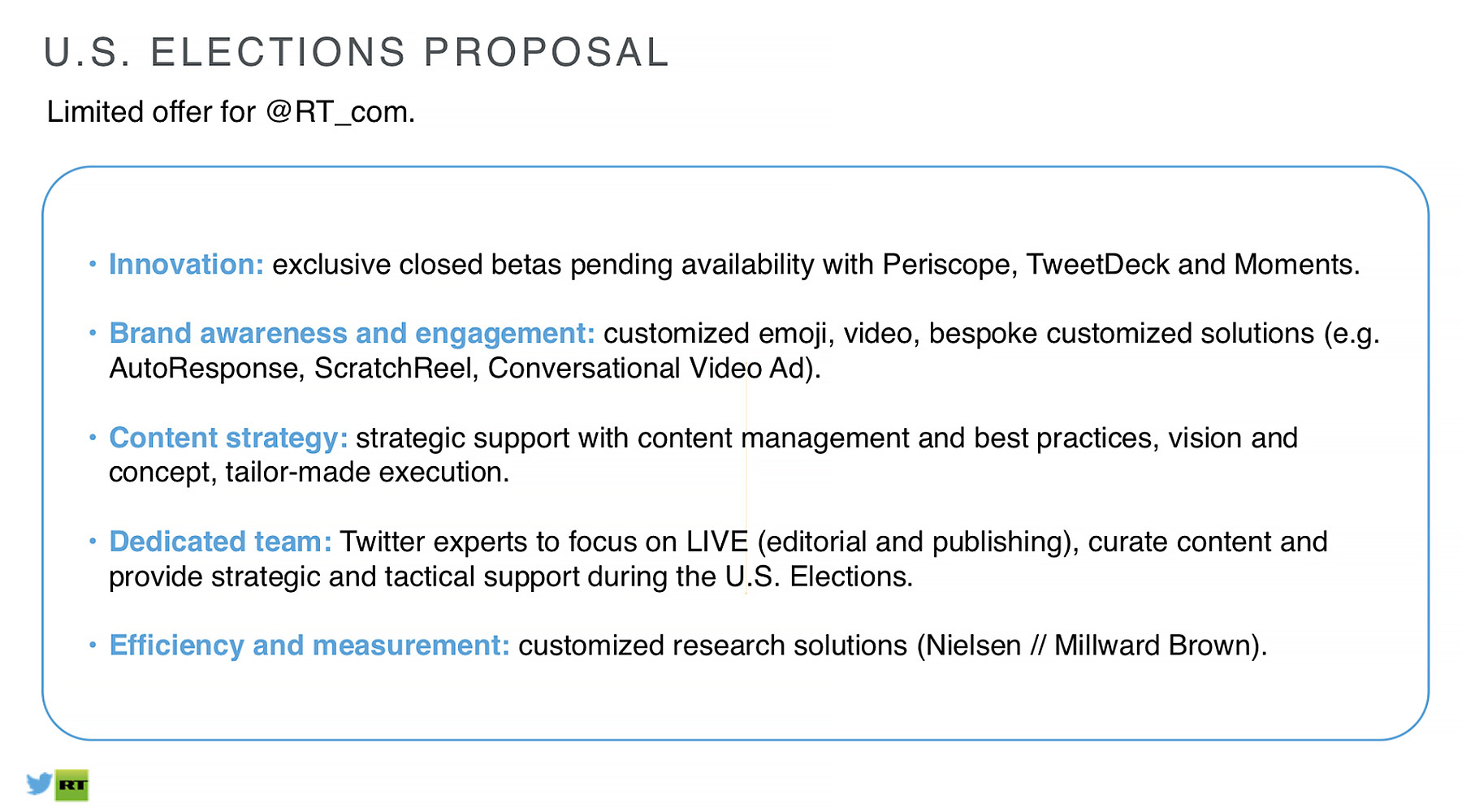tijd
in
puppet_djt
Технология успеха

Две научные статьи проливают дополнительный свет на Интернет-технологии, которые использовались на выборах 2016.
1. Исследователи из Microsoft Research обнаружили сильную корреляцию между уровнем потребления фейковых новостей (в нормальном значении этого термина) и голосованием за Трампа. График вверху говорит сам за себя.
We find that social media was the primary outlet for the circulation of fake news stories and that aggregate voting patterns were strongly correlated with the average daily fraction of users visiting websites serving fake news. This correlation was observed both at the state level and at the county level, and remained stable throughout the main election season.
http://erichorvitz.com/CIKM2017_fake_news_study.pdf
2. Исследователи из университетов Северной Каролины и Юты собрали свидетельства участия крупнейших Интернет-компаний (Фейсбук, Твиттер и Гугл) в избирательных кампаниях. Интересное наблюдение состоит в том, что если кампания Клинтон рассчитывала в основном на свои силы, кампания Трампа полагалась на помощь консультантов из компаний в оптимизировании своей Интернет-стратегии.
Trump was able to make up for his competitive staffing disadvantage against Clinton through leveraging the talent and expertise of firms such as Facebook, Twitter, and Google. <...> The overarching sentiment echoed by representatives of Facebook, Twitter, and Google was that campaigns such as those of Sanders and Trump worked very closely with these firms, while Clinton’s much larger team dictated their advertising buys and strategy. As one representative of a firm stated, in a quote not for attribution (personal communication, date withheld), “Clinton viewed us as vendors rather than consultants.”
http://www.tandfonline.com/doi/full/10.1080/10584609.2017.1364814
Можно предположить, что ошибка кампании Клинтон состояла в том, что они использовали те же приемы, которые помогли Обаме выиграть в 2012, в то время как технология machine learning в компаниях вроде Гугла и Фейсбука значительно ушла вперед в период между 2012 и 2016.
Off-boarding advertising from all accounts owned by Russia Today (RT) and Sputnik.
We’re donating all projected earnings ($1.9mm) to support external research into the use of Twitter in elections, including use of malicious automation and misinformation. https://t.co/zIxfqqXCZr
- jack (@jack) October 26, 2017
В последних новостях - Твиттер отказался от размещения рекламных материалов RT и Sputnik. В официальном извещении говорится:
Early this year, the U.S. intelligence community named RT and Sputnik as implementing state-sponsored Russian efforts to interfere with and disrupt the 2016 Presidential election, which is not something we want on Twitter. This decision is restricted to these two entities based our internal investigation of their behavior as well as their inclusion in the January 2017 DNI report. <...>
Twitter has also decided to take the $1.9 million we are projected to have earned from RT global advertising since they became an advertiser in 2011, which includes the $274,100 in 2016 U.S.-based advertising that we highlighted in our September 28 blog post, and donate those funds to support external research into the use of Twitter in civic engagement and elections, including use of malicious automation and misinformation, with an initial focus on elections and automation.
https://blog.twitter.com/official/en_us/topics/company/2017/Announcement-RT-and-Sputnik-Advertising.html
Реакция из Москвы была предсказуемо истеричной.
Hope @jack won’t forget to tell @congressdotgov how @Twitter pitched @RT_com to spend big $$s on US elex ad campaign. pic.twitter.com/7GqoEoSaY8
- Маргарита Симоньян (@M_Simonyan) October 26, 2017
Воспрепятствование деятельности российских СМИ свидетельствует о нарушении США законов, гарантирующих свободу слова https://t.co/JJPRAvf5FV pic.twitter.com/w1dzSC1zkD
- МИД России 🇷🇺 (@MID_RF) October 26, 2017
Для РИА Маргарита Симоньян сделала такое заявление: «Я, признаться, не верила, что Twitter управляют американские спецслужбы, мне казалось это теорией заговора. Но Twitter только что сам в этом признался. Очень жаль. Особенно жаль, что американские СМИ в России теперь, вероятно, почувствуют всю нежность российских ответных мер.» Из Sputnik туда же поступило заявление «Sputnik никогда не использовал платное продвижение в Twitter. На наши каналы подписаны те, кому надоел мейнстрим и кто ищет альтернативный взгляд на новости.»

Симоньян также раскрыла, в рамках компромата, предложения о сотрудничестве, с которым сотрудники Твиттера обращались в RT накануне избирательной кампании 2016.